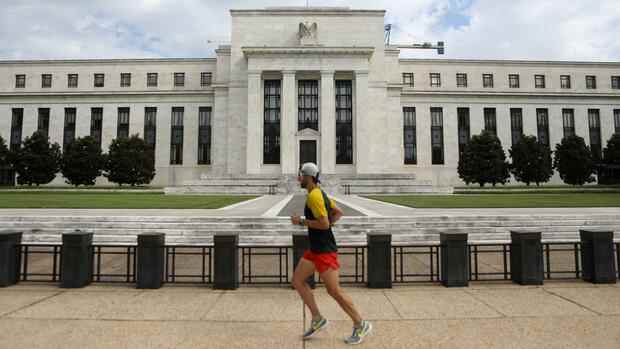The US Federal Reserve (Fed) is under enormous pressure to rein in inflation from the last 8.5 percent. For months, economists have accused her of being too willing to classify the high prices as a “temporary” phenomenon. At the same time, there is concern on the markets that, having reacted too late, they could push the US into recession with even tougher monetary policy.
Against this background, it is worth asking the question: What exactly were the Fed’s mistakes?
Three points stand out here. For one thing, the Fed has probably placed too much reliance on economic models, which often produce forecasts that tend to be mid-term over the long term. These models consistently overestimated inflation before Corona and apparently underestimated it afterwards.
The second point: Before the corona pandemic, the Fed adopted a new, much-noticed and often praised strategy. A core element of this: tolerating slightly higher inflation for a longer period of time, only reacting when the upward trend in prices is clearly recognizable. Basically, this strategy is good for the period of too low inflation before Corona.
Now it is wrong because it ignores an important point: monetary policy must act with foresight because it works with a significant lag.
The Powell and Yellen dream team didn’t work out
And third, the Fed probably underestimated the impact of fiscal policy. Early warners of inflation, such as the economists Olivier Blanchard and Larry Summers, primarily criticized the government’s high spending packages, which according to their – now confirmed – view would lead to demand exceeding the capacity of the US economy and thus to rising prices.
Top jobs of the day
Find the best jobs now and
be notified by email.
Actually, with Jerome Powell as the experienced head of the Fed and his predecessor Janet Yellen as the current US Treasury Secretary, the USA has very good prerequisites for coordinating financial and monetary policy. But in order to combat inflation effectively, the Fed should have opposed the government earlier in order to soften the overly lax financial policy with a tight monetary policy. That’s exactly what didn’t happen.
If monetary politicians are wrong, there is no reason to gloat. Economics is not an exact science, but attempts to roughly estimate the behavior of humans – the most complicated beings in the universe known to us. Nevertheless, it must be said that the consequences of persistently high inflation or a recession are likely to be serious.
In the US, both could result in a victory for the Republicans, who broke the Democratic consensus by refusing to acknowledge an election defeat.
A second election of Donald Trump as US President would also weaken the geopolitical solidarity of the free world. And a US economic crisis or further sharp rises in interest rates will affect, among other things, many emerging countries that have been weakened by high food prices and could undermine their stability.
More: These three points are important at the Fed meeting
